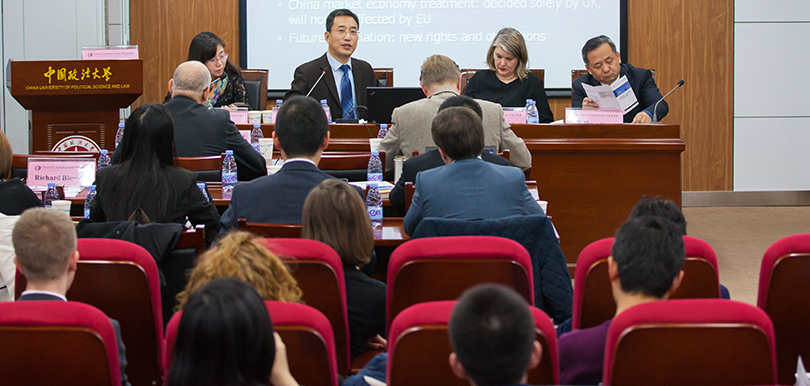Brexit: Legal experts expect impact on International Trade Law
8 December 2016, by Internetredaktion

Photo: CESL
Brexit will have far-reaching consequences in all aspects of business law. This will also have huge impact on China and Chinese enterprises in Europe. That is one of the main conclusions drawn by researchers at the “Legal Implications of the Brexit and its Impact on China” conference which was organised by the China-EU School of Law in Beijing on 6 December 2016. Approximately 50 legal scholars and practitioners took part.
Participants agreed that after Brexit, the UK will need to negotiate with other contracting parties about its future role in international treaties. Even with Prime Minister Theresa May suggesting a “Great Repeal Bill” indicating that all EU legislation shall continue to apply as UK law until the UK government decides to change it, scholars agreed that this will not solve all legal issues. Due to the unclear situation of the future UK-EU relationship and its possible structures, it is not possible to know what will happen and much remains speculation. Participants agreed that there is likely to be a prolongation of the two-year negation period and a need for some kind of transition period. The Chinese and European speakers also discussed possible consequences of a Brexit in specific areas of law such as jurisdiction matters, dispute resolution, competition law and IP law.
During the conference, speakers shed light on the background of the decision of the UK to vote for Brexit and its constitutional consequences as well as Article 50 of the Lisbon Treaty, which sets out the constitutional basis of the European Union in order to leave, was discussed. In addition, they explored the different possible scenarios of how a future UK-EU relationship could look like, such as the Norwegian model, the Swiss model, or even a so-called hard Brexit. This could involve the UK refusing to compromise on issues like the free movement of people, leaving the EU single market and trading with the EU as if it were any other country outside Europe, based on World Trade Organization rules. Participants also debated questions such as “Could the UK change its mind?” especially in consideration of the currently ongoing case in the Supreme Court in London battling over whether the British government parliamentary approval to trigger Article 50 of the Lisbon Treaty.
